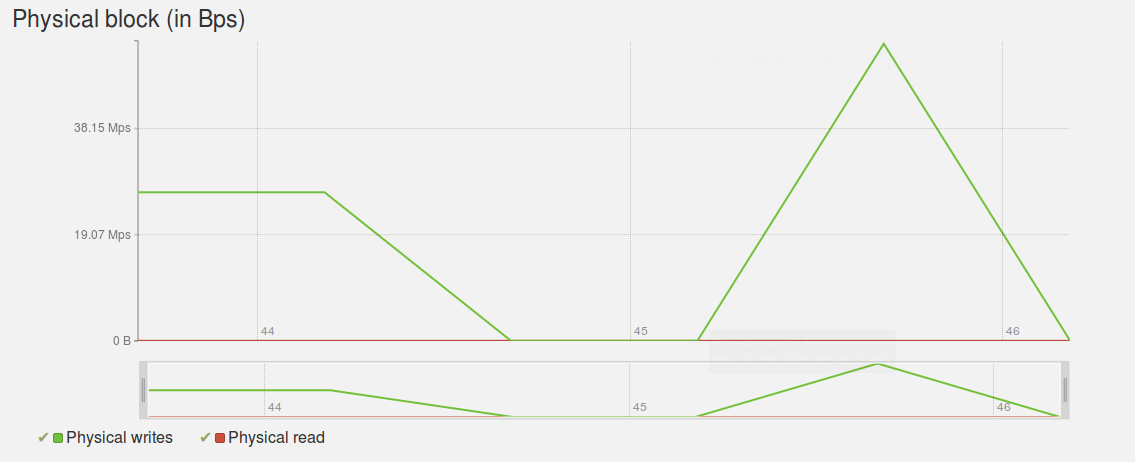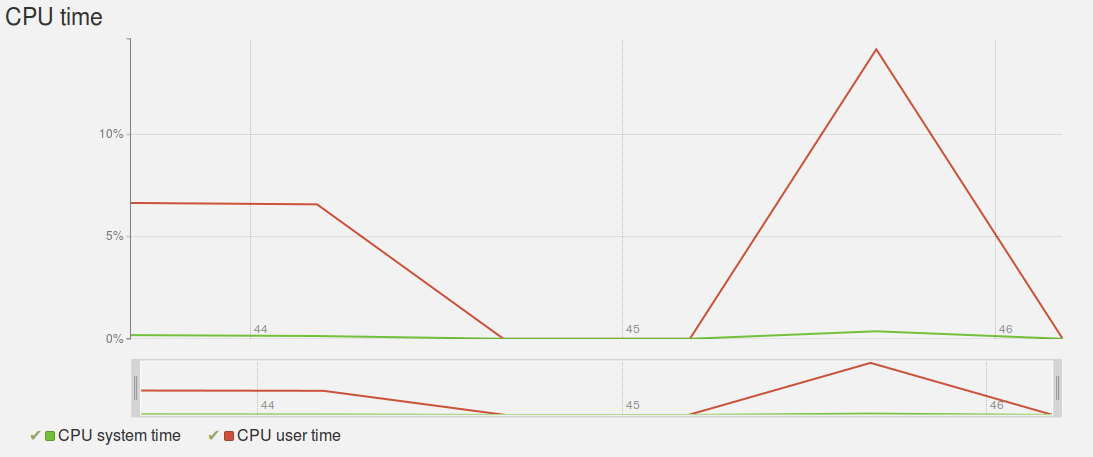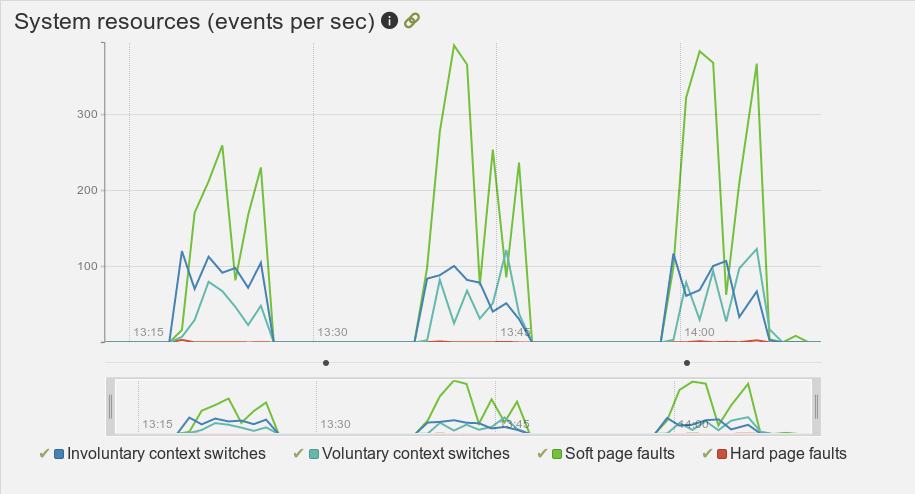pg_stat_kcache¶
pg_stat_kcache is a PostgreSQL extension gathering statistics on system metrics.
Thanks to this extension, the DBA can see how much resource each query, user and/or database is consuming. The resources are:
- CPU (user time and system time)
- Physical disk access (read and write)
Physical disk access are essential in calculating a real hit ratio (cached_reads/all_reads). Without this, we only have the shared_buffers’ hit ratio, and some of the reads made by Postgres could be served by the system cache.
Where is it used in powa-web ?¶
If the extension is available, you should see “Physical block” and “CPU time” graphs on the query page:


The CPU time metrics indicate the percentage of query runtime spent consuming either user cpu time or system cpu time.
The “Hit ratio” graph will also handle this extension, displaying the following metrics :
- Shared buffers hit ratio: percentage of blocks read from shared buffers (memory)
- System cache hit ratio: precentage of blocks read from the system cache (memory)
- Disk hit ratio: Percentage of blocks which needed a physical disk read
The rest of the available metrics will be displayed on a dedicated System Resources graph:

Installation¶
pg_stat_kcache should work with any POSIX operating system. Therefore, it won’t on Windows.
As seen in Quickstart, the PostgreSQL development packages should be available.
First, you need to download and extract the lastest release of pg_stat_kcache.
wget https://github.com/powa-team/pg_stat_kcache/archive/REL2_1_1.tar.gz -O pg_stat_kcache-REL2_1_1.tar.gz tar zxvf pg_stat_kcache-REL2_1_1.tar.gz cd pg_stat_kcache-REL2_1_1
Then, compile the extension:
make
If everything goes fine, you will have this kind of output :
gcc -O0 -Wall -Wmissing-prototypes -Wpointer-arith -Wdeclaration-after-statement -Wendif-labels -Wmissing-format-attribute -Wformat-security -fno-strict-aliasing -fwrapv -fexcess-precision=standard -g -fpic -I. -I./ -I/home/rjuju/postgres/pgs/postgresql-9.4.beta2/include/server -I/home/rjuju/postgres/pgs/postgresql-9.4.beta2/include/internal -D_GNU_SOURCE -I/usr/include/libxml2 -c -o pg_stat_kcache.o pg_stat_kcache.c
gcc -O0 -Wall -Wmissing-prototypes -Wpointer-arith -Wdeclaration-after-statement -Wendif-labels -Wmissing-format-attribute -Wformat-security -fno-strict-aliasing -fwrapv -fexcess-precision=standard -g -fpic -shared -o pg_stat_kcache.so pg_stat_kcache.o -L/home/rjuju/postgres/pgs/postgresql-9.4.beta2/lib -L/usr/lib/x86_64-linux-gnu -Wl,--as-needed -Wl,-rpath,'/home/rjuju/postgres/pgs/postgresql-9.4.beta2/lib',--enable-new-dtags
Then install the compiled file. This step has to be made with the user that has installed PostgreSQL. If you have used a package, it will be certainly be root. If so:
sudo make install
Else, sudo into the user that owns your PostgreSQL executables, and
make install
Then you just have to declare the extension in the postgresql.conf file, like this :
shared_preload_libraries = 'pg_stat_statements,pg_stat_kcache'
Restart the PostgreSQL server to reload the libraries.
Connect to the server as a superuser and type:
CREATE EXTENSION pg_stat_kcache ;
Using with PoWA¶
If you want PoWA to handle this extension, you have to connect as a superuser on the database where you installed PoWA, and type:
SELECT powa_kcache_register();
Configuration¶
pg_stat_kcache will retain as many query statistic as pg_stat_statements, so there’s nothing to configure.